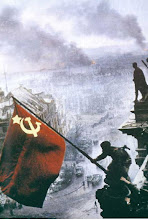 Its not often that a parked car in Limerick makes me stop and look again. However this vehicle achieved that rarity, and prompted me to at long last get to grips with the complexities of the camera embedded for some reason, (probably for occasions such as this I suppose) in my mobile phone. The photo remained embedded within the memory of the phone, until I worked out how to get it out, and that involved emailing it to myself. Oh how things have moved on since the days of the humble Trabbi, with its two stroke engine and its minimalist interior comforts. I undertook a trip from Berlin to a far away destination in the DDR in a Trabant, and I was struck throughout that it was unlikely to afford any significant protection in the event of a collision of even the most minor sort. Thankfully this did not occur, although the lady driving this vehicle at one point did seem to be hell-bent on sending us both on to the big politburo in the sky, when she raced to overtake an NVA (National Volks Armie) lorry on what I recall was a sort of pontoon bridge.Meanwhile, a large soviet made lorry bore down with relentless and undoubtedly utterly unstoppable speed in the lane we were now occupying for what seemed an aeon. The two-stroke engine of the Trabbi reached a screaming pitch of insane hysteria, and we just swerved in front of the NVA lorry in a split second before we were splattered on the huge radiator of the oncoming Russian lorry. Now that Trabant's first cousin seems to be living in Limerick here in Ireland, and is apparently much loved by its student owner for its extreme fuel economy, although the noise of its engine is still something of a shock. Astonishingly the owner did not know,where the car came from, so I started to tell the astonishing story behind her remarkable little car...'once upon a time a long long time ago in a country now almost forgotten, under a socio-economic system now replaced by capitalism....'
Its not often that a parked car in Limerick makes me stop and look again. However this vehicle achieved that rarity, and prompted me to at long last get to grips with the complexities of the camera embedded for some reason, (probably for occasions such as this I suppose) in my mobile phone. The photo remained embedded within the memory of the phone, until I worked out how to get it out, and that involved emailing it to myself. Oh how things have moved on since the days of the humble Trabbi, with its two stroke engine and its minimalist interior comforts. I undertook a trip from Berlin to a far away destination in the DDR in a Trabant, and I was struck throughout that it was unlikely to afford any significant protection in the event of a collision of even the most minor sort. Thankfully this did not occur, although the lady driving this vehicle at one point did seem to be hell-bent on sending us both on to the big politburo in the sky, when she raced to overtake an NVA (National Volks Armie) lorry on what I recall was a sort of pontoon bridge.Meanwhile, a large soviet made lorry bore down with relentless and undoubtedly utterly unstoppable speed in the lane we were now occupying for what seemed an aeon. The two-stroke engine of the Trabbi reached a screaming pitch of insane hysteria, and we just swerved in front of the NVA lorry in a split second before we were splattered on the huge radiator of the oncoming Russian lorry. Now that Trabant's first cousin seems to be living in Limerick here in Ireland, and is apparently much loved by its student owner for its extreme fuel economy, although the noise of its engine is still something of a shock. Astonishingly the owner did not know,where the car came from, so I started to tell the astonishing story behind her remarkable little car...'once upon a time a long long time ago in a country now almost forgotten, under a socio-economic system now replaced by capitalism....'Happy New Year to you all, peace, health, and prosperity to all for 2008.










